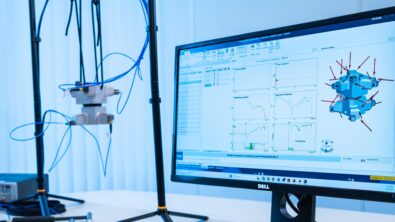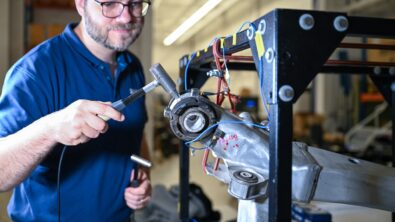On-demand webinar: Frequency Response Function (FRF) testing

Build highly accurate virtual models using Frequency Response Function testing and digitalize in the NVH domain

Accurate Frequency Response Function (FRF) test data has become an essential element in obtaining accurate, representative models of components and assemblies in the Noise Vibration & Harshness (NVH) domain engineering.
We have created a video showcasing several stories. These stories show how to accurately measure FRFs datasets. This enables product engineers to build highly accurate virtual models. Increased realistic models makes design decisions more reliable.
We will be discussing Simcenter testing solutions in the data collection part of each video . We pay special attention to the Simcenter Qsources acoustic and structural exciters. Demonstrations of acoustic sources to capture acoustic Transfer Functions will also be shown, as well as vibro-acoustic Frequency Response Functions. Structural inertia shakers are used to capture reciprocal FRFs and structural FRF sets for modal analysis.
Several CAE models use this test data for either model validation and correlation or to improve the accuracy of the model with limited time.
Curious? We lift a corner of the veil right here:
Now that you’ve seen the teaser, you can view the full video here.
More information:
For more information on the installation of the Siemens Simcenter Mid High Frequency Source for reciprocal FRF (frequency response function) measurements, follow this link.
Read this white paper about the latest developments in component-based transfer path analysis: “Predict system NVH performance early in the design using virtual prototyping.”
Learn about other structural and acoustic exciters enabling accurate FRF measurements in an efficient way – Learn more.
A deep dive into modal analysis from a test and simulation perspective can be found here.
Read this interesting post on high frequency structural FRF (frequency response function) measurements.
Measuring FRFs in challenging conditions? Read more here.


